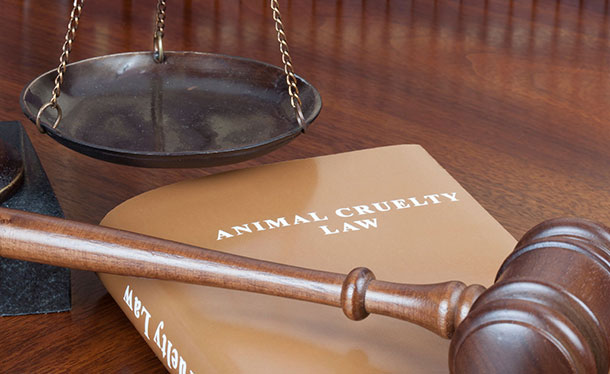Crimes against society, also referred to as crimes against public order, are offenses that transgress the standards and moral principles that are widely accepted in society. This could apply if your conduct disturbed or harmed other members of society.
The Minnesota Department of Public Safety’s Bureau of Criminal Apprehension (BCA) receives information regarding criminal activity from Minnesota law enforcement agencies to comply with reporting requirements at the state and federal levels.
The end result is the 2021 Uniform Crime Report, a compilation of the state’s crime statistics.
Crimes Against Society
Animal Cruelty
Similar to the rest of the nation, Minnesota prohibits animal cruelty. The state’s animal protection laws cover a variety of creatures (including service dogs and livestock) and actions (from euthanasia methods to greased pig competitions).
If a person intentionally causes serious injury to a pet in order to frighten or intimidate another person, they have committed a felony. Animal abuse is often considered a misdemeanor, but it can become a crime if it results in the animal’s death or significant physical harm.
Drug/Narcotic Offenses
Based on the substances involved, the UCR Program gathers data on arrests for drug-related offenses.
Federal regulations are severe for punishments for drug and narcotic offenses since they constitute crimes against society.
The illegal production, distribution, sale, purchase, use, possession, transit, or importation of any controlled substance or narcotic is included in the offenses.
Federal offenses, including drug charges, can carry a prison sentence. One year is the minimum possible penalty. However, those who were trafficking or distributing narcotics, smuggling them across international borders, or who had committed other crimes while engaging in drug-related activity may receive a life sentence.
Gambling Offenses
Gambling offenses that break both federal and state gambling regulations are considered crimes against society. State regulations frequently specify the legal age and places for gambling, whereas federal rules deal with activities like international gambling and gaming on Native American territory.
Pornography/Obscene Material
You may go to jail for engaging in child pornography, unlawful prostitution, or having intercourse with an underage individual. Because the age of consent varies throughout states, local regulations have a significant impact on this.
Prostitution Offenses
Prostitution is defined by Minnesota law (2008 Minnesota Statutes Section 609.324 MN) as a person who accepts payment or other incentives in exchange for sexual penetration or contact. Under state law, sexual contact is defined very broadly; penetration is not necessary to prove prostitution.
Weapon Law Violations
There are open carry laws in many states. State-to-state guidelines might, however, differ significantly. For instance, in Minnesota, open carry of a firearm is permitted with a permit. The requirement for concealment of the handgun is not specified by the legislation.
With a permission to carry a pistol, concealed carry is authorized. Only handguns are eligible for concealed carry permits; automatic weapons, rifles, and shotguns are not included. Criminal penalties for gun crimes range from one to ten years in jail. Penalties may vary by state.
Group B Offenses
Curfew/Loitering/Vagrancy Violations
Offenses include violations of municipal loitering or curfew laws by minors. A misdemeanor is committed by anybody who is discovered lurking, waiting, loitering, or hiding in a building, yard, or other area on the fairgrounds with the purpose of committing a crime or causing trouble.
Disorderly Conduct
Disturbing the peace and otherwise irking or upsetting other individuals are examples of disorderly conduct.
Disorderly behavior is typically categorized as a misdemeanor, which entails a maximum sentence of one year in jail.
Driving Under the Influence
Although 0.08 is the legal limit for Minnesota drivers, DWI arrests can be made at lower levels. Each DWI offender will face different penalties, but a common punishment for a first-time offender includes a possible jail sentence and a license suspension that could last anywhere from 30 days to a year.
Drunkenness
2022 Minnesota Statutes Section 340A.902 states that no one can be charged with a crime for being intoxicated or intoxicated in public. However, a police officer may charge you with additional offenses, such as disorderly conduct, if you are intoxicated in public.
Liquor Law Violations
Beer, wine, and spirits are all subject to laws governing the possession, use, and serving of these alcoholic beverages. Each state has its own rules governing infractions of its liquor laws, which are often divided into three main categories: consumption (including possession), sale, and serving.
Trespass of Real Property
Trespassing is the illegal entry onto another person’s property without that person’s consent. Trespassing penalties are largely influenced by local laws and the specifics of the offense.
Contact Criminal Defense Attorney Jeff Dean
One of Minnesota’s most seasoned and well-respected criminal defense attorneys will battle for you if you’ve been suspected of committing or charged with a crime against society.
To arrange a consultation, call Jeff Dean Law at (612) 305-4360 right away.


